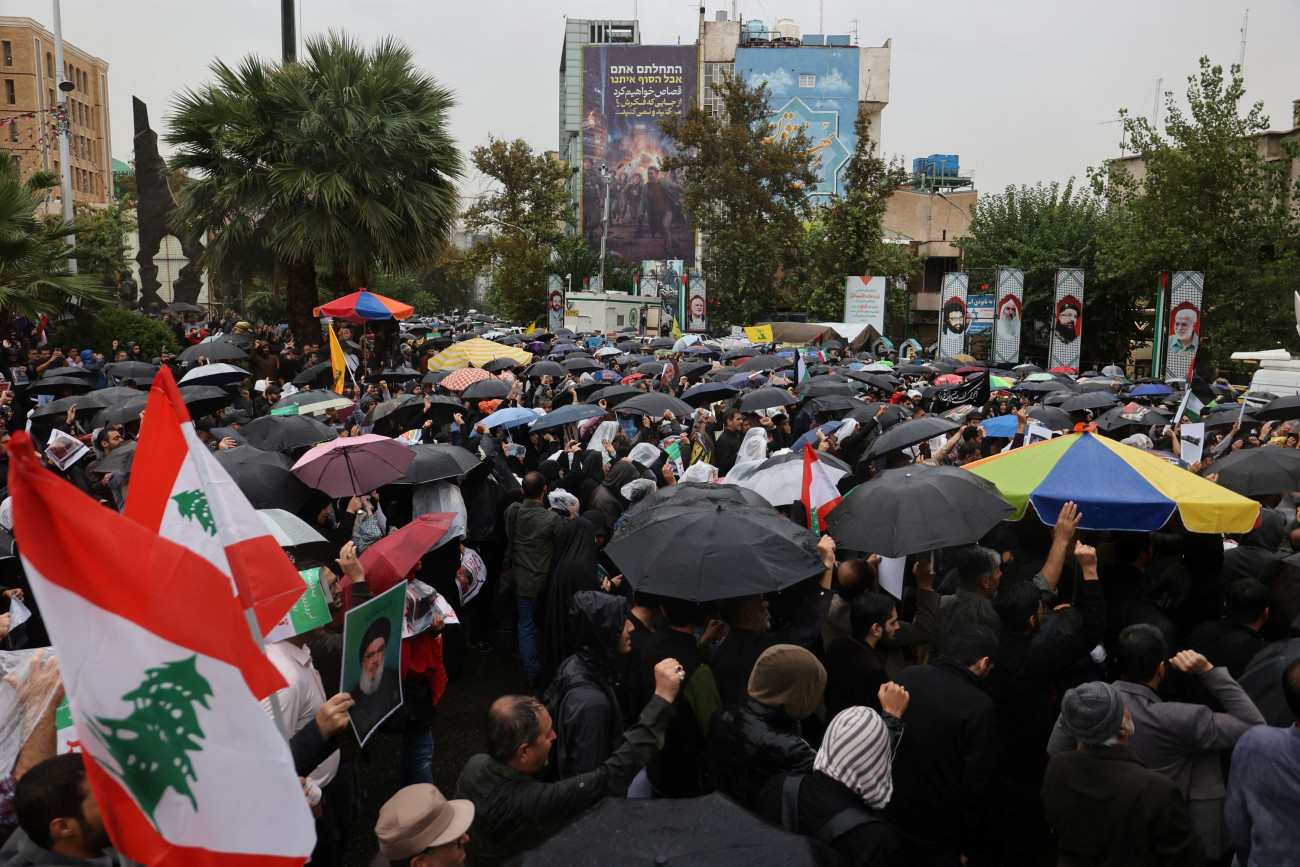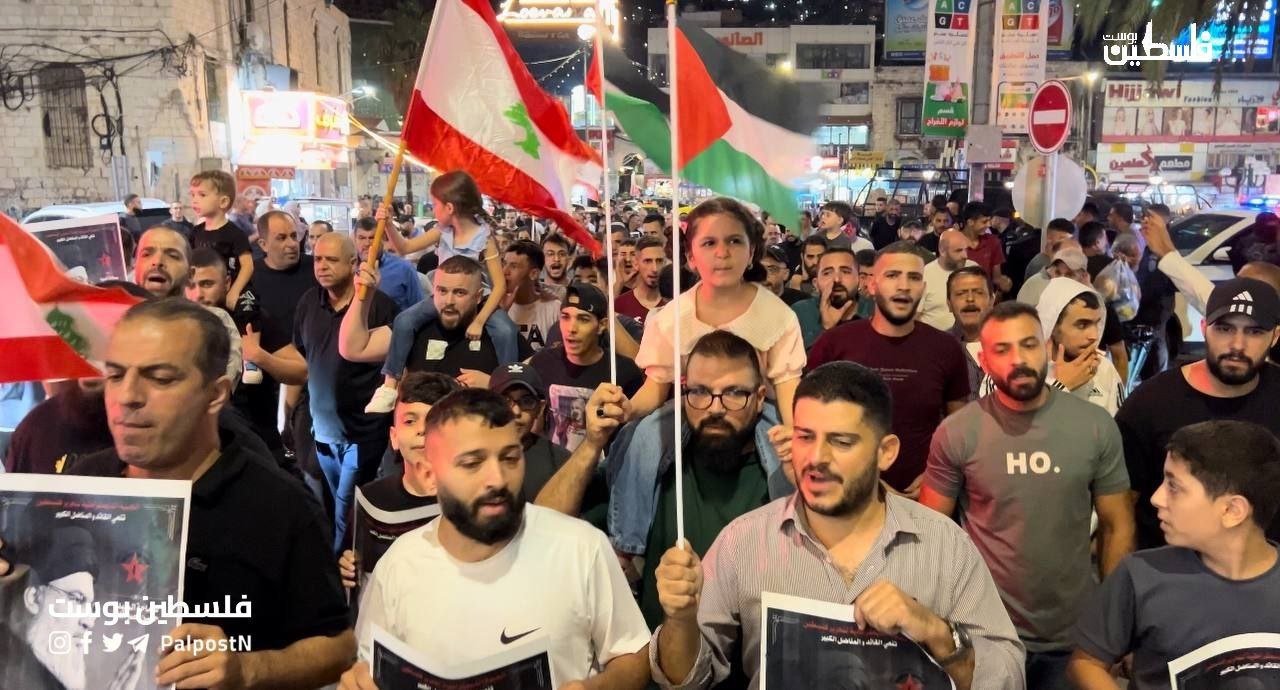Friday night’s explosions in Beirut were like an earthquake that shook the city. Thousands of people fled their homes and sought safe shelter.
The official count of Israeli strikes on Saturday leveled an entire city block, leaving 11 dead and 108 injured so far. But tons of debris have gone missing and rescue teams are scrambling to find it.
On Saturday, Israeli sources confirmed what they had said since Friday night. Hezbollah leader Hassan Nasrallah, other commanders of the organization, and the deputy commander of the Revolutionary Guards were killed in the attack.
The country’s structures, broken by five years of economic crisis, cannot bear the burden of a new disaster
News of his assassination caused grief and outrage in Lebanon. Shops were closed in Beirut, people mourned, and spontaneous gatherings erupted in various locations as protesters held up pictures of Nasrallah.
The assassination of Hezbollah’s 32-year leader was unimaginable to many. It was unimaginable for the people of Lebanon to live for ten days.
Communication equipment exploded simultaneously, killing hundreds and injuring thousands.
500 people were killed in half a day of Israeli bombing. A million people have been displaced from their homes. Many no longer have a home to return to, while others return to the Syrian hell from which they fled.
Now Nasrallah’s assassination is another blow to most of Lebanon.
Nasrallah’s popularity in Lebanon peaked in 2006
“We live on what Nasrallah gave us. It allowed us to hold our heads high. Whatever Nasrallah says, I will follow,” said Faisal, 46, from Dahiyeh (the area where the Israeli attack took place), sharing a piece of broken Styrofoam as a pillow with his wife. Small boys playing in Mardiran Square in downtown Beirut, The Guardian reports.
Ariel Sharon in the presidential palace with her legs spread on the table. Can Netanyahu do this now? No why? Because of Hezbollah,” Faisal said.
After the successful war with Israel in 2006, Nasrallah and Hezbollah’s popularity soared not only in Lebanon, but throughout the Arab and Muslim world.
In the following years, of course, the organization’s image suffered a lot of damage. Like its repressive role in the October 2019 cinema bombings in Lebanon, its role on Assad’s side in the Syrian civil war has been instrumental in breaking down opposition forces against the regime.
But the Israeli occupation of Gaza and now Lebanon has once again made Hezbollah a focal point rather than the official government.
Solidarity wave
Escalating Israeli attacks have sparked a wave of solidarity in Lebanon. One could say that Netanyahu succeeded in uniting Lebanon.
Solidarity movements, private initiatives and the Hezbollah network are trying to provide food, clothing and other basic needs to victims of Israeli attacks.
Rami Mehio, a 30-year-old urban planning researcher who has registered as a volunteer with aid groups, said that “volunteering” is “innate” to Lebanese in times of crisis.
“You can’t call it volunteering, we are the ones who hold the country together even in extreme tragic events, otherwise Lebanon simply doesn’t work,” Mehio told the Guardian, explaining that he “cannot sit still”. To see the house and its people killed one by one.”
The country’s structures, broken by five years of economic crisis, cannot bear the burden of a new disaster. Schools had already been turned into shelters to house thousands of displaced people before shelling outside Beirut began on Friday.
However, the increasing intensity of strikes cannot under any circumstances meet the demands. Displaced youths face an uncertain future in the streets, parks and squares.
Many of them don’t know if their houses are still standing and can’t go back to find out. Nasrallah’s assassination adds further uncertainty.
However, Hizbullah will not be disbanded just because its leader or commanders are killed. Nasrallah also replaced the previous leader who was assassinated.
Analysts note that Israel will not achieve its goals this way and insist that Nasrallah’s successor may be more radical.
Anger and grief in the Muslim world
The assassination of the Hezbollah leader sent shockwaves across the Muslim world. Protests broke out in many countries, as did the assassination of Hamas political leader Ismail Haniyeh.
Carrying photos and flags of Hezbollah and Palestine, thousands demonstrated in Jordan and tried to reach the Israeli embassy in Amman, where they were blocked by police.
In Iraq, protesters also tried to reach the US embassy, while large demonstrations took place in Tehran and Yemen.
Palestinians hit the streets in Ramallah and Nablus in the West Bank, hit hard by Israeli attacks.


Demonstration in Tehran


Demonstration in Ramallah
Nasrallah’s killing, hours after Netanyahu’s speech at the UN, was hailed by the US as an act that “delivers justice”.
Israel appears determined to continue its attacks in Lebanon, with officials reiterating that their goal is to destroy Hezbollah.
A ground attack is on the table. Diplomatic initiatives by the United States and France have fizzled for good, and at this point no one seems capable of stopping the escalation spurred by the Israeli prime minister.
In his latest message, Netanyahu described Nasrallah’s assassination as a necessary step and a historic turning point that could change the balance in the Middle East.
It did not fail to threaten Iran once again that no place was beyond Israel’s reach.
The Lebanese government condemned the attack and announced five days of mourning. Iran has also declared three days of mourning, which has yet to retaliate.
On Saturday, 33 more deaths were reported in Lebanon. Meanwhile in Gaza – which has disappeared from the news in recent days – the bloodshed continues.